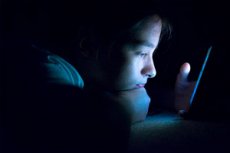New publications
Study finds that popular teens sleep less than their peers
Last reviewed: 02.07.2025

All iLive content is medically reviewed or fact checked to ensure as much factual accuracy as possible.
We have strict sourcing guidelines and only link to reputable media sites, academic research institutions and, whenever possible, medically peer reviewed studies. Note that the numbers in parentheses ([1], [2], etc.) are clickable links to these studies.
If you feel that any of our content is inaccurate, out-of-date, or otherwise questionable, please select it and press Ctrl + Enter.

Because of the late onset of melatonin production and increased alertness in the evening, teens often have difficulty falling asleep at a time that would allow them to get the recommended eight to 10 hours of sleep each night.
It is during adolescence that increasing school demands, activities, greater independence from parents, and relationships with peers begin to compete with sleep. However, the role of social context is often overlooked when studying adolescent sleep. Now, researchers from Sweden and Australia have examined how popularity among peers affects the sleep habits of 14- to 18-year-olds.
The study is published in the journal Frontiers in Sleep.
"We showed that popular teenagers report shorter sleep duration. In particular, popular girls, but not boys, report more insomnia symptoms," said Dr. Serena Badukko, a sleep researcher at Örebro University and first author of the paper. "Most interestingly, popularity seems to have a negative impact on sleep both before and after the introduction of smartphones."
Popular and underslept In a sample of more than 1,300 Swedish teenagers, nearly half of them girls, the researchers examined whether popularity correlated with shorter sleep durations. They asked the teens to nominate up to three friends, and those who received the most nominations were considered more popular. These teens slept less than their peers, with the most popular ones sleeping up to 27 minutes less.
When the researchers looked at boys and girls separately, they also found a correlation between popularity and insomnia symptoms: More popular girls experienced more insomnia symptoms, such as difficulty falling or staying asleep, or waking up too early. Popular boys did not experience these symptoms to the same extent.
These gender differences are not yet fully understood, but the fact that boys and girls display different friendship behaviors may provide an explanation. "Girls express more concern and attention to their friends and engage in more helping behaviors than boys. This may mean that they carry these concerns with them when it's time to go to bed," Badukko explained.
Phones May Not Explain Popularity-Sleep Link "We also see that popularity was associated with worse sleep both before and after the rise of portable communications technology," Badukko said. This suggests that it may not be smartphones that are causing popular teens to sleep less; instead, other mechanisms may be at work.
The researchers suggest that having more friends may mean more time spent with them, which could lead to less time left for sleep. More emotional investment could also lead to sleep difficulties. Both explanations apply to the time before and after smartphones became common. However, this requires detailed research, the researchers say.
Sleep Debt Accumulation "Teenagers are perhaps the most sleep-deprived population in their lifetime," Badukko said. "Previous research suggests that 30 minutes of extra sleep can lead to improved mental health and better performance in school."
With early school starts, many teens try to catch up on lost sleep on the weekends — a strategy that can backfire. "Let's say a teen sleeps in until 1 p.m. on Sunday. Getting to sleep that night to be ready for school the next day will be difficult because they won't feel tired," Badukko said. "Delaying their wake-up time too much can perpetuate the problem of sleep debt that accumulated during the week."
The researchers believe that discussing social norms about sleep and peer expectations about bedtime is a missing component of existing interventions to improve sleep in adolescents. Additionally, further research is needed to examine the relationship between social connectedness and sleep and to clarify the gender differences found.
